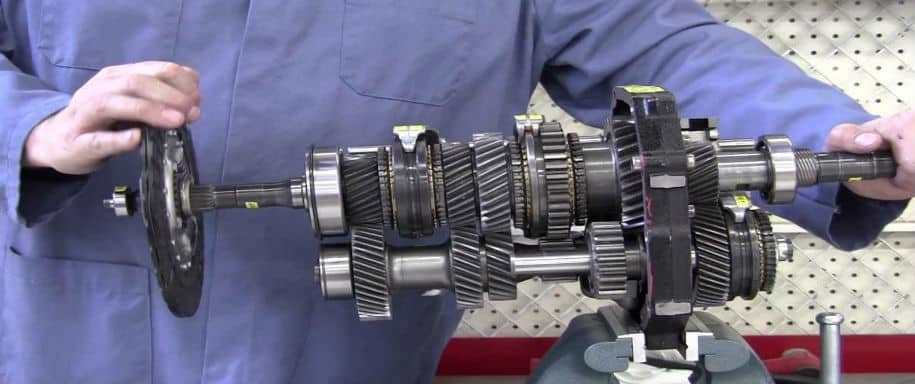Drive with Confidence: Triad Area Transmission Shop at Your Service
Drive with Confidence: Triad Area Transmission Shop at Your Service
Blog Article
Typical Signs of Transmission Troubles and What You Can Do Regarding Them
Transmission issues in lorries can create considerable trouble and prospective safety and security hazards. Acknowledging the usual signs of transmission problems can aid you resolve them immediately and stay clear of more damage or expensive repair work. This write-up will certainly discuss some of the typical warning indicators, such as unusual noises, difficulty moving gears, burning smells, fluid leaks, and delayed interaction. By recognizing these indications, you can take proper activity to stop more damages to your transmission and guarantee the smooth procedure of your lorry. Whether it's looking for specialist support or taking safety nets, recognizing these signs equips you to make informed choices and preserve the longevity of your car's transmission.
Strange Noises
One usual indication of transmission issues is the occurrence of strange sounds, which can suggest underlying concerns that require prompt attention. These unusual audios can vary in nature and strength, and they often offer as a warning indication that something is wrong with your vehicle's transmission system.
One of one of the most usual unusual noises linked with transmission troubles is a grinding noise. This audio normally happens when changing equipments and can suggest worn-out gears or an absence of transmission fluid. Neglecting this sound can result in more damages to the transmission system, causing pricey repairs.
Another noise to be wary of is a whining or buzzing sound. This noise is frequently heard when the car is in neutral or when accelerating. It can indicate reduced transmission fluid levels or a stopping working pump. Resolving this concern without delay can prevent more damages to the transmission and prolong its life expectancy.

Lastly, a clunking or banging sound can likewise be a reason for worry. This sound is generally listened to when shifting equipments or throughout acceleration and slowdown. It can symbolize damaged or damaged transmission mounts, which can cause the transmission coming to be misaligned or detached.
Trouble Shifting Gears
If you experience difficulty moving equipments in your vehicle, it might suggest transmission problems. Trouble changing gears can show up in various ways, such as grinding, sliding, or reluctance when changing equipments. This concern can occur in both automated and hands-on transmissions and must not be disregarded, as it may lead to additional damages and pricey repairs if not dealt with immediately.
One feasible reason for difficulty shifting gears is low transmission fluid levels. Insufficient fluid can hinder the smooth operation of the transmission, making it more challenging to involve the gears appropriately. Triad Area transmission shop. Checking the liquid degree and including even more if needed may minimize the issue.
One more potential culprit is a used clutch or clutch parts in hands-on transmissions. Gradually, the clutch can end up being worn, leading to troubles in changing gears smoothly. In such instances, changing the worn clutch or its components might be needed to bring back proper shifting.
In automated transmissions, difficulties moving gears can be triggered by issues with the shutoff body or solenoids. The valve body regulates the flow of transmission liquid, while the solenoids regulate the pressure required for gear changes.
Burning Odor
A burning smell is a clear indication of possible transmission problems. If you observe a burning smell coming from your lorry, it is essential not to overlook it as it might be an indicator of a serious problem with your transmission. The transmission is in charge of transferring power from the engine to the wheels, and any type of find more info troubles with it can affect the performance and security of your automobile.
There are several prospective causes for a burning odor in your transmission. One usual reason is overheating, which can occur due to low transmission liquid degrees or a malfunctioning air conditioning system. Friction between the relocating parts of the transmission can additionally produce heat and trigger a burning scent. In addition, worn-out clutch plates or sliding clutches can produce a burning odor.
Neglecting it can lead to further damages to your transmission and costly fixings. The very first step is to inspect the transmission fluid degree and condition. If it is reduced or has a charred smell, it may be necessary to change or refill the liquid.
Fluid Leakages
Fluid leakages are a common sign of transmission problems and need to be attended to quickly to stop more damage. Transmission liquid plays a critical function in the smooth procedure of an automobile's transmission system. It lubricates the moving components, cools down the transmission, and supplies hydraulic stress for gear shifts. Consequently, any leak of this liquid can lead to severe concerns and potential failure of the transmission.
The liquid might have an unique burnt scent or a pleasant smell, depending on the type of transmission fluid used. Additionally, low transmission liquid degrees can trigger issues such as slipping gears, postponed or irregular moving, or odd noises coming from the transmission.
When faced with a liquid leakage, it is crucial to take prompt action. Common locations where leaks take place include the transmission pan gasket, output shaft seal, input shaft seal, and transmission colder lines.

Delayed Engagement
One usual indicator of transmission problems is a postponed involvement, which can be an indication of underlying problems that require immediate interest. When moving equipments or when the automobile takes longer than typical to respond to the motorist's input, postponed engagement refers to the delay experienced (Triad Area transmission shop). When attempting to accelerate from a total quit., this can materialize as a jerking or a hesitation activity.
There are several potential reasons for postponed engagement. One possibility is reduced transmission fluid levels, which can stop the transmission from running correctly. An additional reason might be used or harmed clutch plates, which might need substitute. Furthermore, a damaged solenoid or a malfunctioning shutoff body might likewise cause delayed engagement.
If you're Visit Website experiencing postponed interaction, it is crucial to attend to the problem immediately. Disregarding it can result in further damages to the transmission and a lot more pricey repair work down the line. The primary step is to check the transmission liquid levels and ensure they are at the ideal degree. If the liquid is reduced, including even more may settle the concern. However, if the trouble persists, it is suggested to get in touch with an expert mechanic who can diagnose and fix the underlying source of the delayed involvement.
Verdict
In conclusion, recognizing common signs of transmission troubles such as strange noises, difficulty shifting gears, burning click to find out more odor, fluid leakages, and delayed involvement is crucial for keeping a well-functioning vehicle. By immediately attending to these concerns, individuals can prevent more damages and costly fixings. When required will certainly ensure the smooth procedure of the transmission and extend the lifespan of the lorry., regular maintenance and seeking professional assistance.
It can signify broken or worn-out transmission places, which can lead to the transmission becoming misaligned or detached. (transmission shop Triad Area)
Transmission liquid plays an important duty in the smooth procedure of an automobile's transmission system. Furthermore, low transmission fluid levels can cause troubles such as slipping equipments, postponed or erratic changing, or strange noises coming from the transmission.
Common areas where leakages happen include the transmission frying pan gasket, outcome shaft seal, input shaft seal, and transmission cooler lines. One opportunity is low transmission fluid degrees, which can avoid the transmission from operating appropriately.
Report this page